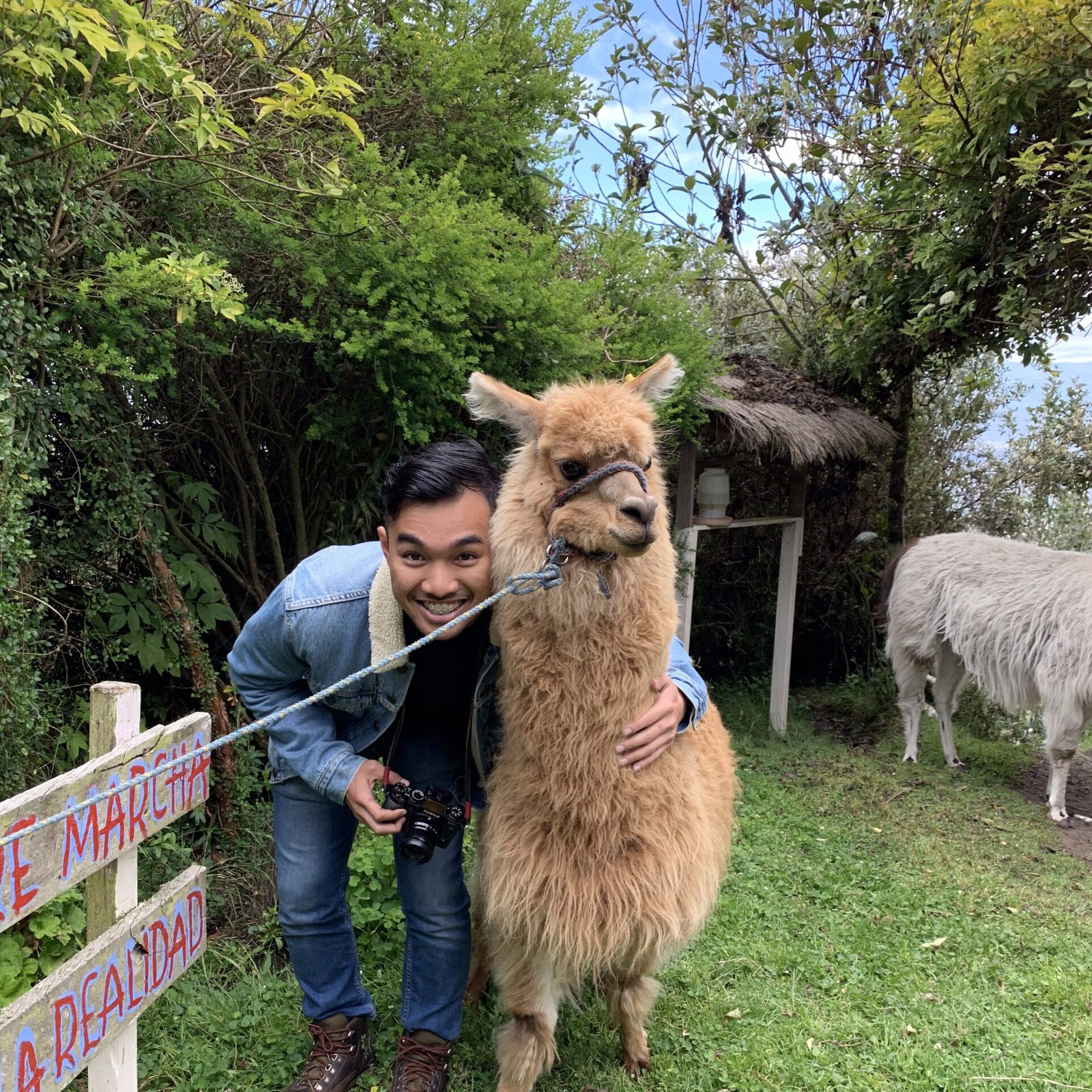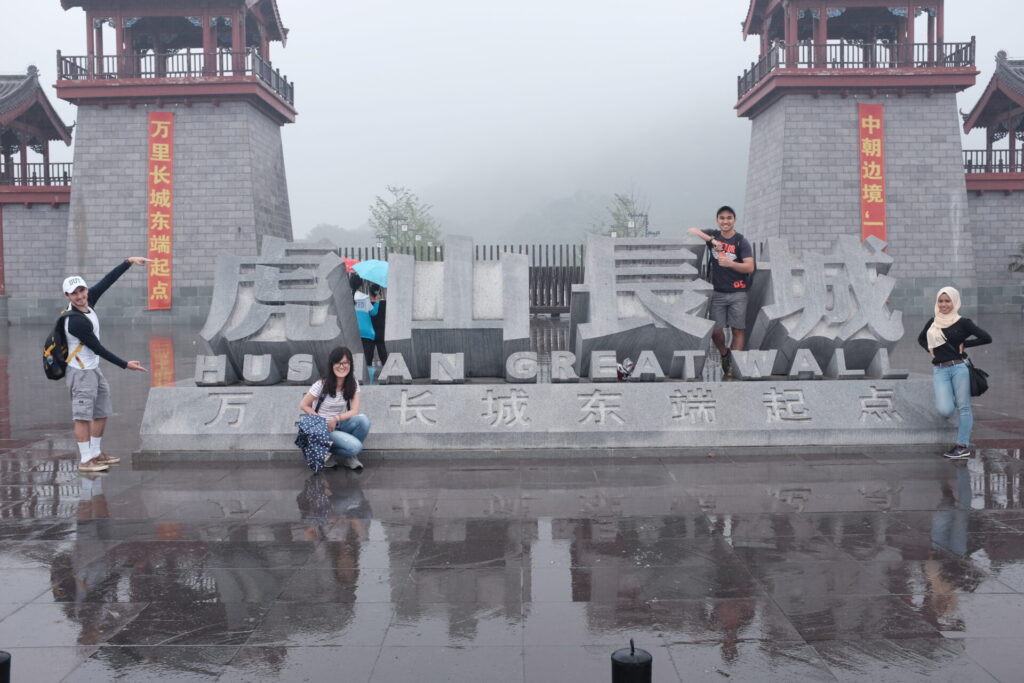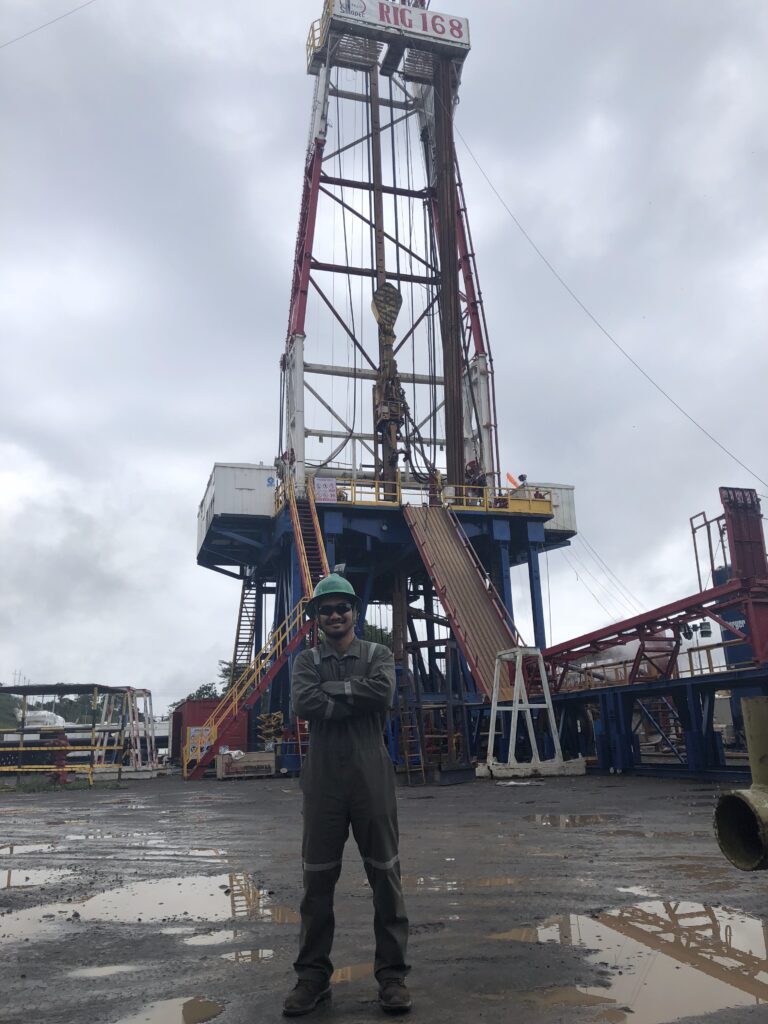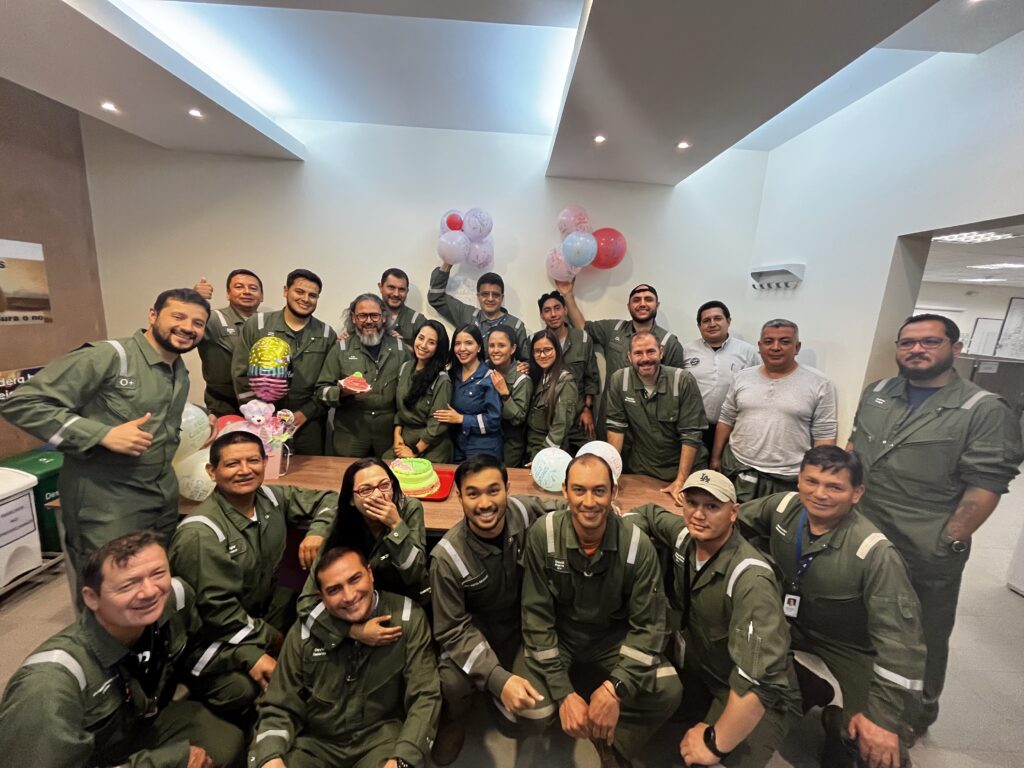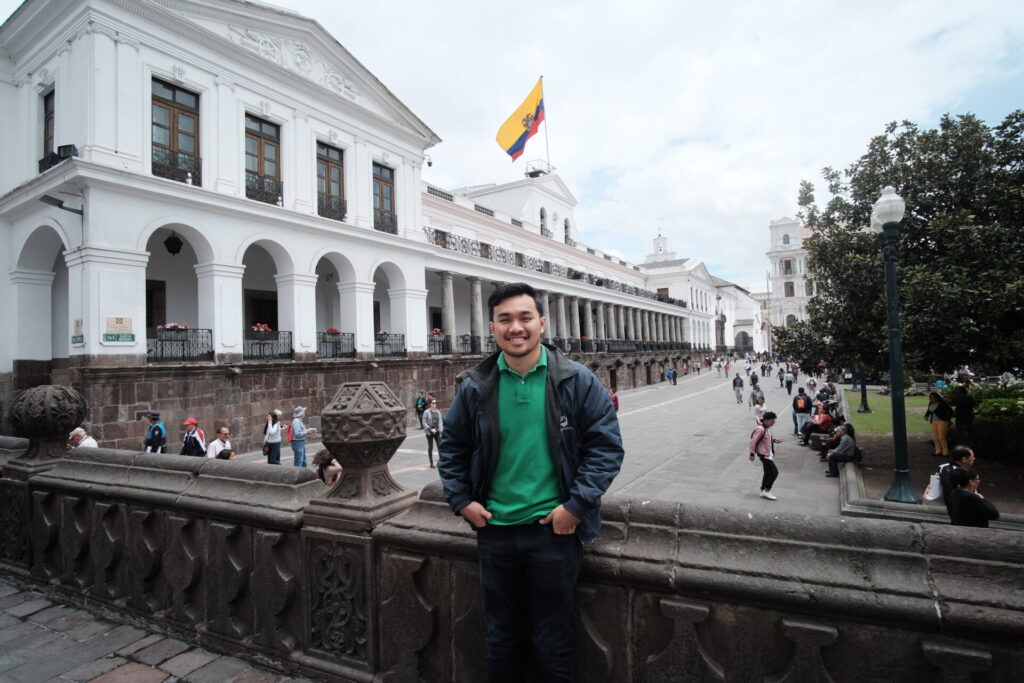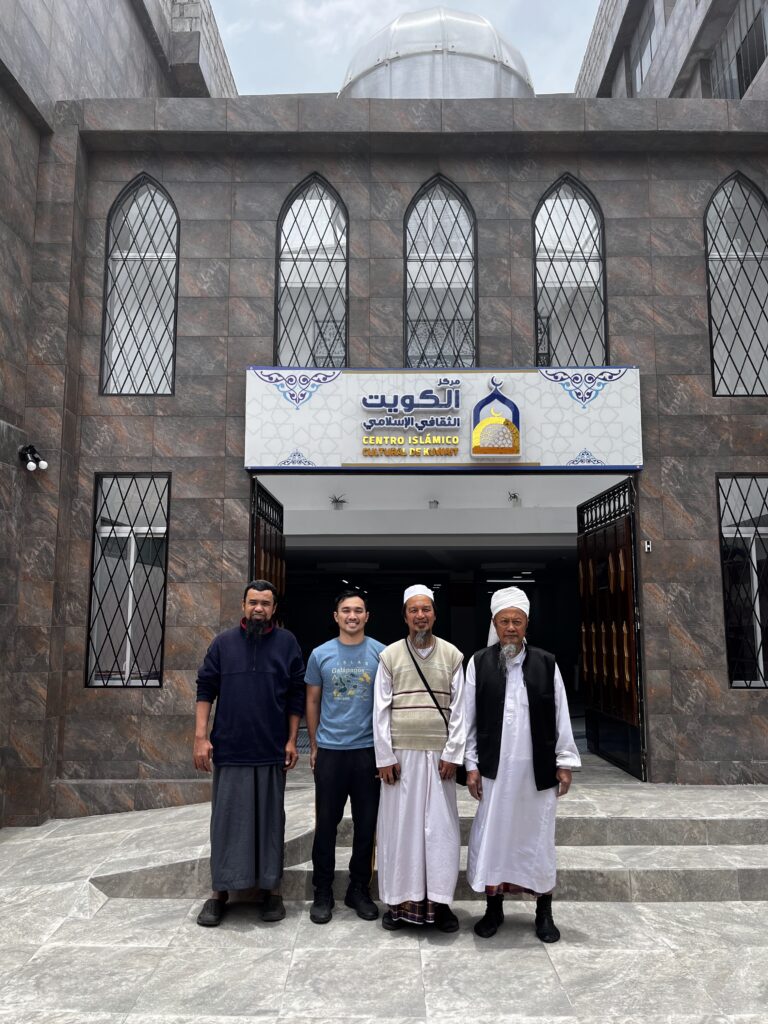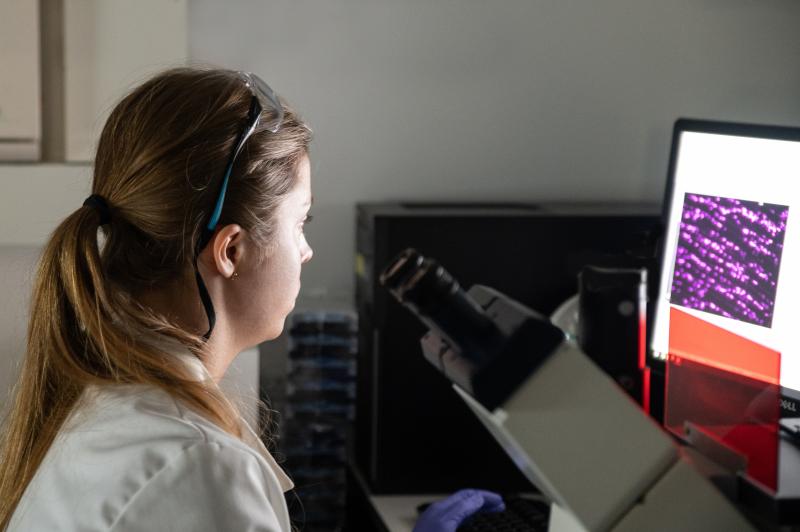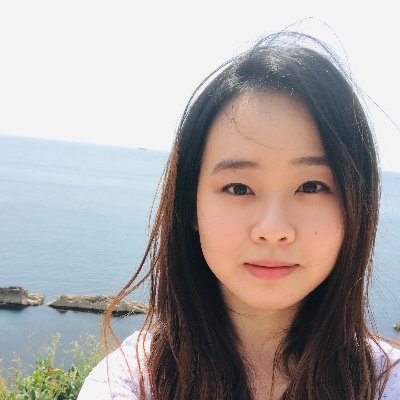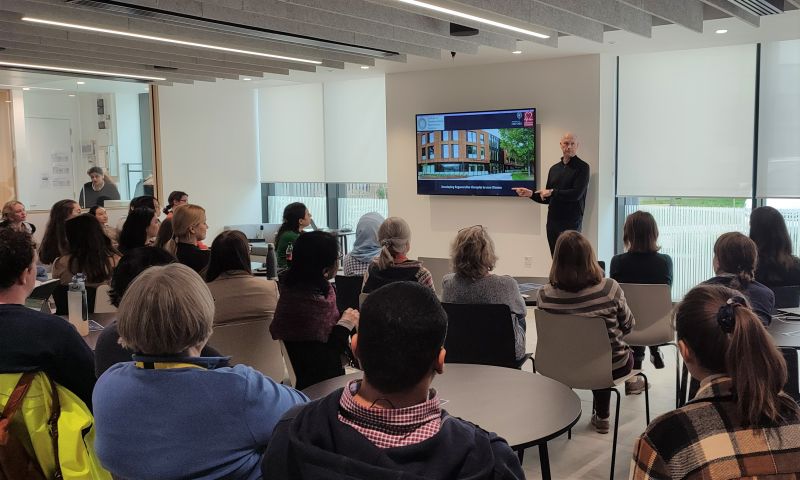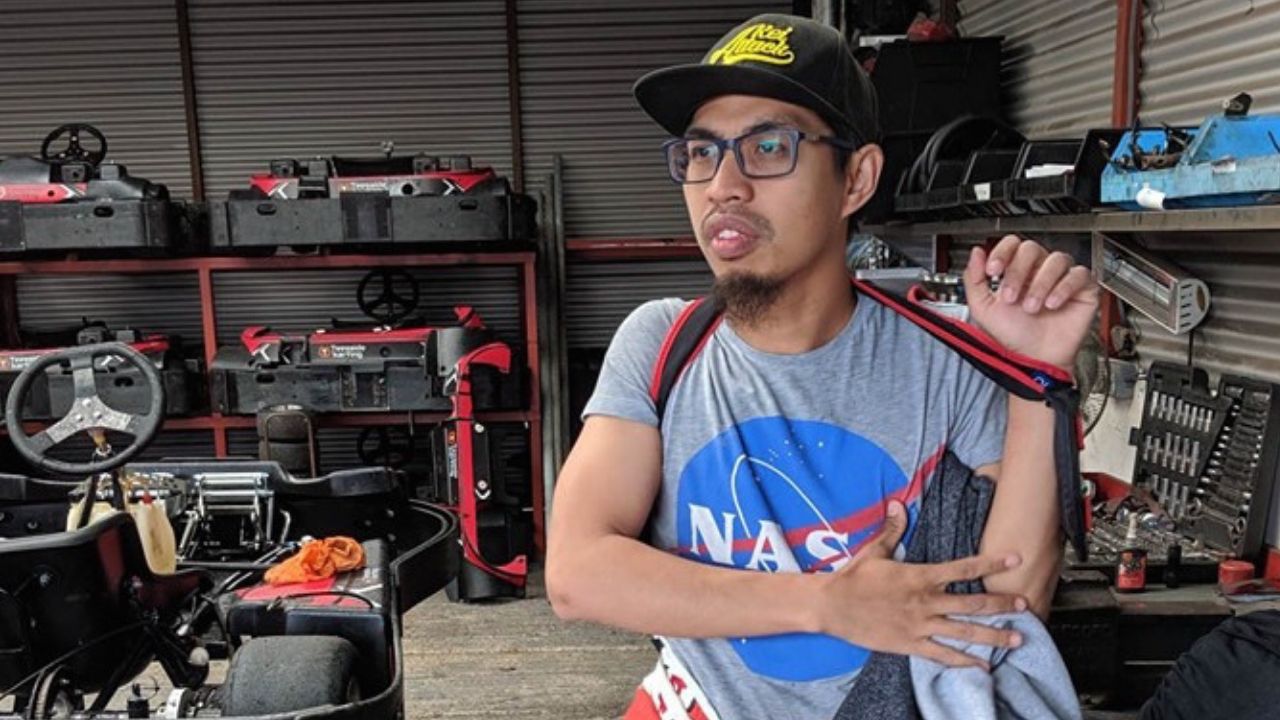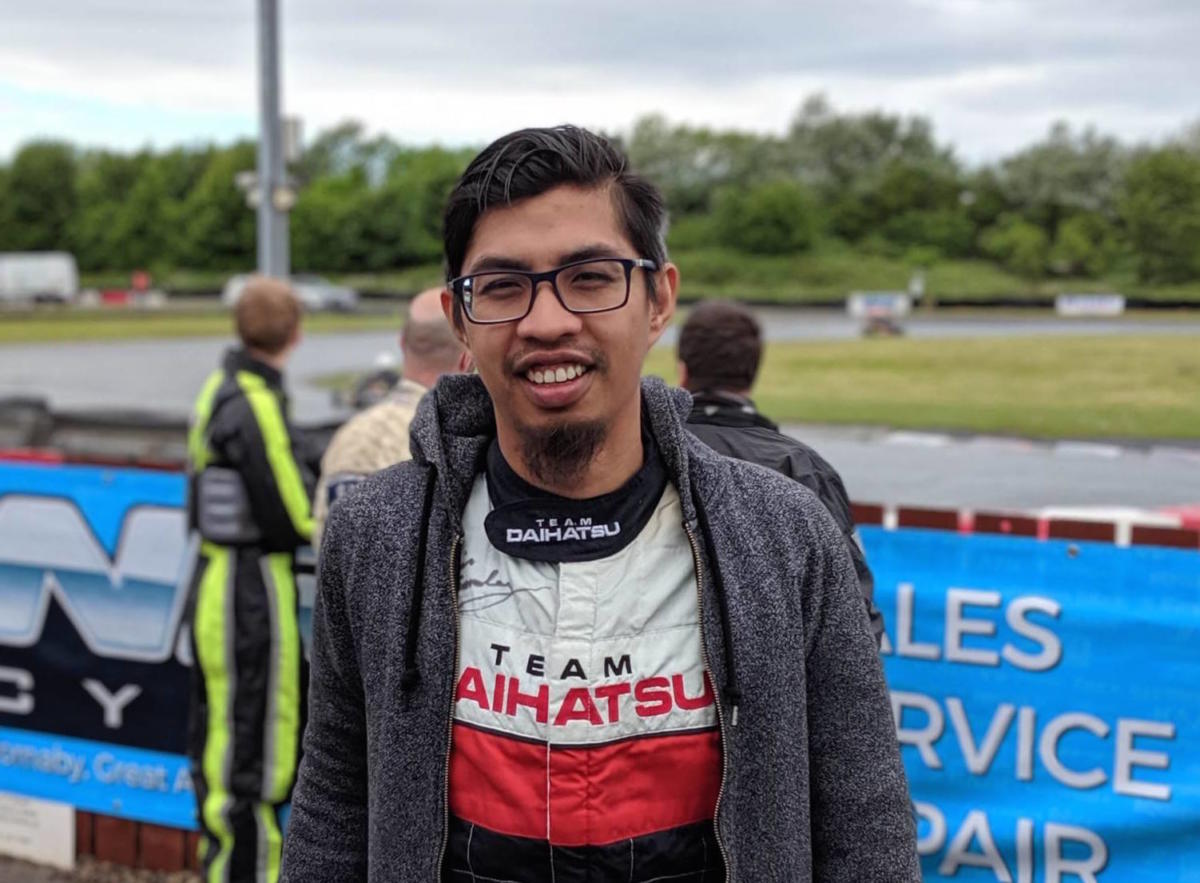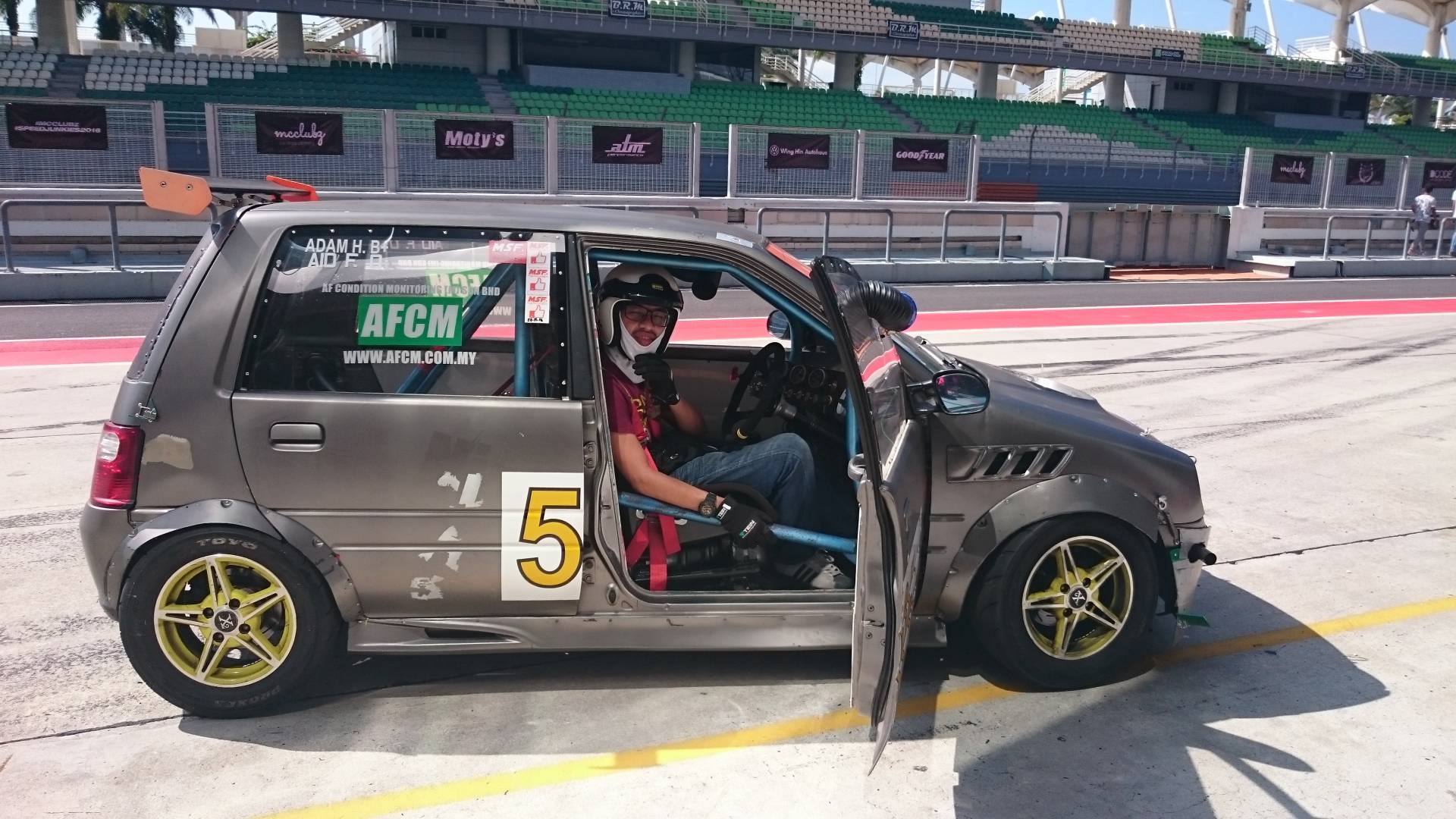When Hafid Mohadi accepted a job offer from the world’s largest oilfield services company, he had no idea it would take him over 15,000 kilometres away to Ecuador. The petroleum engineer now spends his workdays deep in the Amazon rainforest, coordinating oil production operations—while communicating entirely in Spanish.
Seeing where he is now, it truly makes Hafid’s ascent from a humble family in Klang all the more remarkable.
This is how he rose up from challenging circumstances and overcome language and cultural barriers to expand his horizons in the United States (USA) and China, before laying foundations in South America.
From Googling Careers to Studying in the US
Growing up in a household he described as ‘low-income’, Hafid always held a pragmatic view towards his future. “Finance has always been an issue in my life,” he shared. “When I was younger, I Googled what careers paid the most—surgeon, business and petroleum engineering came up.”
As someone who enjoys subjects like science, mathematics and chemistry, petroleum engineering seemed like the best fit.
After completing the Sijil Pelajaran Malaysia (SPM), Hafid applied for every scholarship he could find. “I just shot my shot everywhere and even applied to universities in the UK and Australia,” he recalled. Eventually, it was a government scholarship through Majlis Amanah Rakyat (MARA) that sent him to the Pennsylvania State University —or Penn State for short —in the US to pursue his bachelor’s degree.
For the first two years, Hafid explored a broad foundation of engineering disciplines. It was not until his junior year that he had to formally declare a major. “I actually wanted to pursue chemical engineering at first, but my grades didn’t meet the cut,” he admitted. “Petroleum engineering was the next available option, and I qualified—so I thought, why not?”
US & China: A Dual Study Abroad Experience
Hafid’s educational journey abroad did not end in the US. During his time at Penn State, he spent a semester abroad in China at Dalian University of Technology, where he also interned at China Petroleum Engineering & Construction Corporation (CPECC).
“It felt like a double study abroad,” he recalled fondly. “Up to that point, I assumed the US had the best infrastructure, but I was impressed by China—it was on another level.”
Though only three months long, the programme was formative. From classes on Chinese business to weekend excursions across Chengdu, Xi’an and Beijing, Hafid gained more than just technical knowledge. He also developed cultural fluency, adaptability and confidence.
Reflecting on this experience, Hafid recognises how meaningful it is for Malaysians studying overseas to stay connected with home and with each other. Initiatives like MyHeart’s Network and Connect make it easier for Malaysian students abroad to find and reach out to other Malaysians in the same city or country. It can also help them to start building a network even while studying. These early connections can blossom into friendships, mentorships and even professional opportunities later on.
Working in Ecuador by Chance
After graduating from Penn State in 2017, a period when a downturn in the oil and gas sector occurred, Hafid entered one of the most challenging phases of his life. After applying to over 200 jobs without any leads, he decided to become a trainee at UEM Group while continuing his job hunt.
Then a stroke of luck came along. While browsing Schlumberger’s website, Hafid came across a job listing that fit his field of expertise and proceeded to submit his resume. After four rounds of interviews—none of which mentioned Ecuador—he was offered a position in Quito, the country’s capital.
He later discovered that he had originally been hired for a Malaysia-based project. However, it fell through, following which he was reassigned to a project with a similar scope in Ecuador.
As a field production engineer based in the Amazon, Hafid now leads site operations, manages rig activities and oversees oil production in a landscape vastly different from Klang. His schedule is intense: 21 days straight in the rainforest, 7 days off and 12 hour-long workdays that begin at 5am. “We see the oil come out of the ground with our own eyes,” he said.
Initial Language Struggles & Mastering Spanish
Apart from the lengthy hours and rural work environment, Hafid also had to conquer a major language barrier.
As someone with zero knowledge of Spanish living in a country where it is the main language spoken, Hafid initially resorted to rudimentary methods to communicate. “I had to use gestures and sounds in shops—like clucking to ask for chicken,” he revealed.
Determined to adapt, he studied Spanish for hours each day. Fast forward seven years later, he is now fluent in the language and can list leading a project team made up entirely of Latinos among his proudest achievements.
“I convinced them to follow the programme I developed, got investment approval, executed the project and it delivered results—we produced more oil. That was a proud moment for me as a non-Latino in a leadership role,” Hafid shared.
Upskilling for a New Chapter
Despite a demanding field job, Hafid’s passion for learning continues to burn brightly. In 2024, he took a one-year unpaid educational leave to pursue not one, but two academic programmes: an MBA at Penn State and a postgraduate certificate in Artificial Intelligence & Machine Learning from The University of Texas at Austin (UT Austin).
He is also in the midst of completing a management consulting certification, which focuses on project and client management as well as proposal creation.
By learning all these, Hafid hopes to expand his expertise in the oil and gas industry and take on bigger, meatier roles, such as manager or head of department.
Staying Malaysian, 15,000km Away
Over the years, the distance from home means he has missed family milestones like his sister’s wedding, but Hafid remains connected through yearly trips home for Hari Raya and regular calls with his parents.
Still, there have been heartening moments. Once, he was contacted by a local imam in Quito about a group of Tabligh missionaries visiting from Kedah. Hafid hosted them, drove them around and even helped a subsequent group install a water system in an Amazonian community that had embraced Islam.
Another time, when the Malaysian embassy from Peru made an official visit to Ecuador, Hafid was invited to join as the only Malaysian in Ecuador. Despite feeling out of place among the various officials and diplomats, Hafid was proud to represent Malaysia in that moment.
These encounters showcase how Malaysians, no matter where they find themselves, carry with them a spirit of kindness, generosity and connection. Network and Connect can help sustain these bonds by making it easy to find fellow Malaysians abroad and nurture those connections beyond chance meetings.
Planning a Return Home with Purpose
Looking ahead, Hafid aims to return to Malaysia and reunite with his family someday.
Before that, he wants to build up his finances first. “When I come back, I want to either continue working in oil and gas, start my own business or lecture at a university.”
Hafid is especially passionate about mentoring young Malaysians—especially those from underprivileged backgrounds like his. “I’d love to connect with motivated students from low-income families looking for a mentor. I’d be happy to share my story.”
He hopes to guide students aspiring to enter the oil and gas industry through their studies, job search, and early careers.
“When I was younger, I never imagined I could study or work overseas. I didn’t know it was even possible. But now that I’ve done it, my story is proof that it is achievable. I want to help others see that too. That’s how I hope to give back to my country.”
Are you a Malaysian abroad hoping to inspire, mentor and support the next generation of talents back home? Join MyHeart and connect with fellow Malaysians and contribute to Malaysia’s future —no matter where in the world you are.


